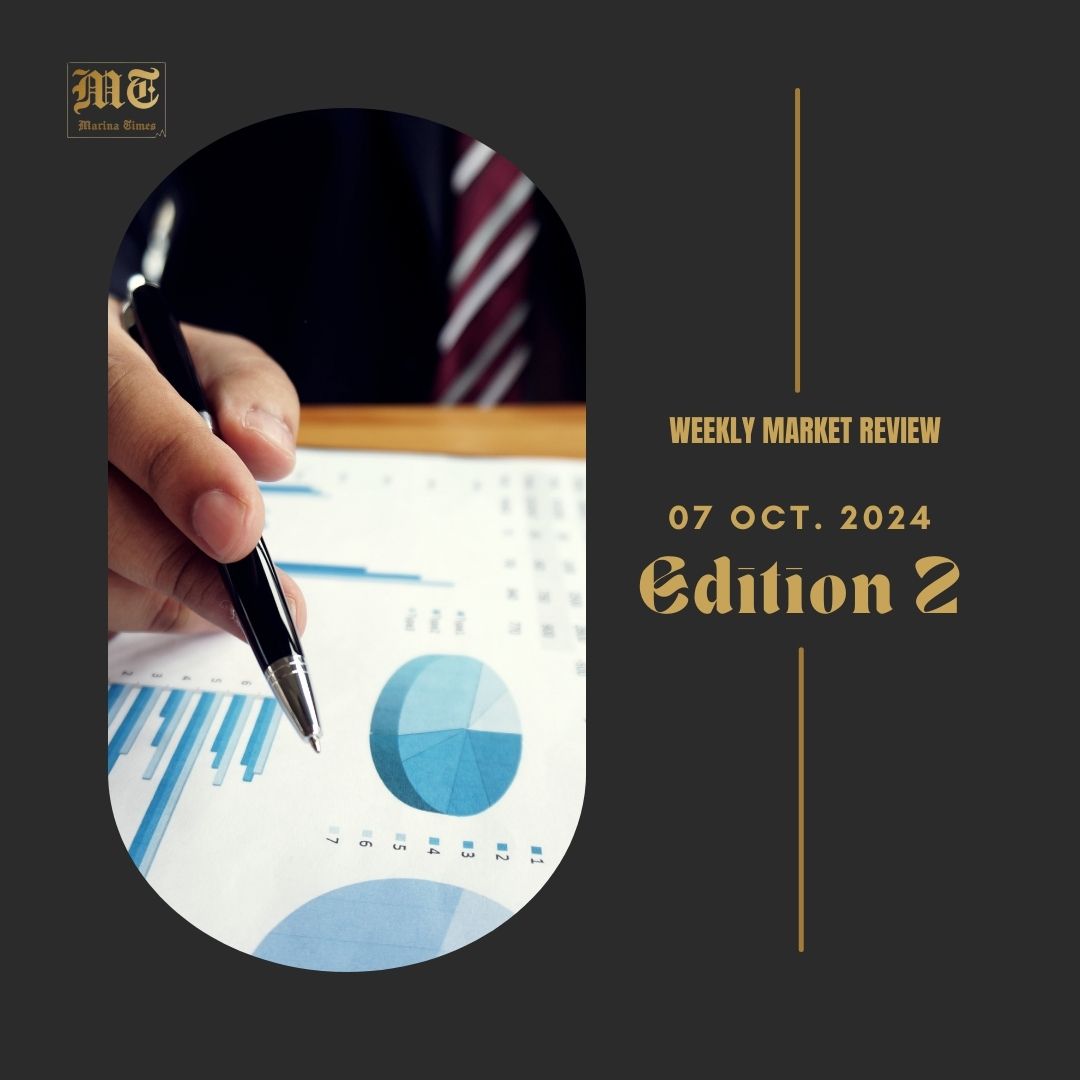

Last week, Nigeria marked her 64th Independence Anniversary with modest celebrations across the country. Among the key highlights of events was President Bola Ahmed Tinubu’s announcement relating to the clearing of over N30 trillion in Ways and Means debt, a significant financial burden accumulated over time. This announcement sparked widespread discussion, as it suggested a positive step toward restoring fiscal stability. However, some analysts are of the opinion that the debt was only ‘restructured,’ contrasting the president’s stance.
In the fixed income markets, speculation is growing that this quarter may see reduced borrowing activity from the Debt Management Office (DMO). This possibility, if true, carries significant implications for investors and traders. The Central Bank of Nigeria (CBN) tightening stance in recent weeks with aggressive OMOs may very well serve to counter this posture as inflation remains a concern.
At the NAFEM Window, the exchange rate traded as high as $/N1,699.00 on Wednesday, and as low as N1,540.00 on Monday. The market closed the week at $/N1631.21, and we observed that the interbank Naira liquidity position recorded an average deficit of over N170 billion for the week.
The Ways and Means advances are short-term loans granted by the Central Bank of Nigeria (CBN) to the Federal Government, intended to cover budget deficits. Over time, however, this temporary measure ballooned into a massive debt, leading to concerns about its long-term sustainability and impact on inflation, monetary policy, and Nigeria’s broader economic outlook.
While President Tinubu’s claim of ‘clearing’ the debt could be interpreted as an achievement, financial analysts have cast doubt on the claim. Many argue that rather than being entirely cleared, the debt has been ‘restructured,’ meaning that the payment terms were altered to make the burden more manageable over a longer period. Restructuring could involve extending the repayment timeline, reducing interest rates, or consolidating debt to prevent further strain on government finances.
This distinction between clearing and restructuring is significant because it impacts how the debt is perceived domestically and internationally. Outright redemption would indicate full repayment and signal a shift in the government’s fiscal discipline. However, restructuring could imply that while immediate pressure has been reduced, the debt itself continues to loom, potentially constraining future fiscal plans.
At the end of the last two OMO auctions held at the end of September 2024, rates closed at 24.3600% and 24.3000%, respectively. The total offer for each of the OMO auctions amounted to N500 billion. Although the total sale for the first auction was equal to the total bids, it was approximately 50% below the total amount on offer. The second auction had a sale of N2 billion out of a total bid of N245 billion resulting in a sale-to-offer ratio of 4%. In a different turn of events, the OMO auction conducted last week sold up to 150% of the total amount on offer.
TENOR | AUCTION DATE | OFFER (₦’B) | BIDS (₦’B) | RANGE OF BIDS (%) | STOP RATES (%) | PREVIOUS STOP RATES (%) | TOTAL SALE (₦’B) |
89-DAY | 03-10-2024 | 25.00 | NIL | NIL | NIL | NIL | NIL |
187-DAY | 03-10-2024 | 25.00 | NIL | NIL | NIL | NIL | NIL |
362-DAY | 03-10-2024 | 450.00 | 737.14 | 23.9400-24.4750 | 24,3200 | 24.3000 | 731.14 |
Even though there were earlier speculations that the Debt Management Office (DMO) may not engage in aggressive borrowing this quarter, recent developments with the Open Market Operations (OMOs) paint a different picture, thereby suggesting that the CBN will be ready to mop up excess liquidity from the system.
With the recently oversubscribed local Dollar bond issue, many stakeholders expect the DMO to reduce the issuance of Naira debt to manage costs. With improving employment data in the US, the Federal Reserve may not cut rates as rapidly as expected and this may impact the DMO’s ability to keep local Dollar issuance yields attractive. In any case, the DMO will have to mitigate risks associated with future Dollar borrowing, specifically ensuring that rates are not too high.
The dramatic change in this latest auction has caught the attention of market analysts, and some now attribute the change to a supposed renewed interest from Foreign Portfolio Investors (FPIs) in the Nigerian markets. FPIs, who play a critical role in shaping the fixed income market have shown reduced participation in recent months, partly due to concerns about currency volatility and uncertainties surrounding Nigeria’s fiscal policies.
However, their seeming return to the markets may signal growing confidence in the Government’s commitment to addressing the issues identified, possibly driven by some measures implemented by the CBN — specifically the recent 50 basis points hike in interest rates. Another possible reason for the increased activity at the OMO auction could be the improved attractiveness of Nigerian debt instruments, particularly in the context of rising global interest in emerging markets. As developed markets are faced with lower yields, Nigerian securities, especially longer-term instruments, may offer higher returns, which should attract FPIs seeking to diversify their portfolios.
In other news, analysts have attributed the continued depreciation of the Naira primarily to the persistent shortage of foreign exchange (FX) in the Nigerian market. This scarcity of FX has placed immense pressure on the value of the local currency, as demand far exceeds the available supply. Despite the CBN’s recent efforts to alleviate the pressure by selling FX to Bureau de Change (BDC) operators, the impact has been limited. The sales to BDCs were intended to increase liquidity in the FX market, particularly for small-scale users who rely on these outlets to meet their foreign currency needs. However, the scale of intervention has not been sufficient to halt the downward trend of the Naira, as broader structural issues continue to affect the market. Market participants have queried the sale of large volumes at once to BDC operators and other licensed entities and have opined that perhaps sales should be made in tranches.
Recall that when the CBN revisited the Retail Dutch Auction System (RDAS) in August 2024, it led to a brief period of Naira appreciation. The RDAS system, which allows for more flexible exchange rates through auctioning FX at competitive rates was seen as a positive step in managing the currency’s value more effectively. Many analysts welcomed the appreciation of the Naira’s value following the use of RDAS. The system brought a level of transparency and efficiency to FX distribution, with market participants able to access FX at rates closer to the real market price.
This appreciation, though small, was viewed by many as a step in the right direction, as it signalled that with proper FX management policies and a more market-driven approach, the Naira could stabilise or even strengthen over time.
The NTB auction this week will shed light on the DMO’s borrowing strategy for the Quarter and confirm its alignment with CBN’s tightening posture or otherwise. The Bond issuance calendar will also help give a sense of the interest rate direction for the rest of the year.
Going forward, a core issue remains the underlying shortage of FX supply, which continues to limit the appreciation in the value of the Naira. Nigeria’s ability to generate FX largely depends on her oil exports, and fluctuations in global oil prices, coupled with declining production levels, have severely reduced the inflow of Dollars into the economy. The key will be for the government to implement policies that enhance FX supply, encourage market confidence, and reduce the demand pressure that has contributed to the Naira’s depreciation. While the sales to BDCs and the RDAS system have provided a temporary reprieve, long-term solutions will likely require more comprehensive economic reforms, including boosting non-oil exports, attracting foreign direct investments, and addressing structural bottlenecks in the economy. The introduction of an Electronic Foreign Exchange Matching System is expected to boost transparency in the FX market and promote strict compliance.
We are of the opinion that the Middle East crisis may be nearing its crescendo as the adverse implications of further escalation are very clear to all parties to the divide on the 1st anniversary of the October 7th attack. We expect America, Europe, and the Arab League to restrain the conflict and contain its impact now more than ever. Our view is based on the singular fact that the entire world needs to combat inflation and this war has only served to worsen global inflation.